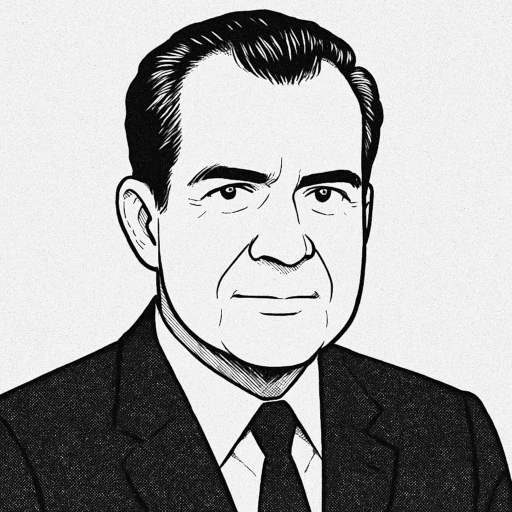“If I were to make public these tapes, containing blunt and candid remarks on many different subjects, the confidentiality of the office of the president would always be suspect.”

- January 9, 1913 – April 22, 1994
- American
- The 37th President of the United States, Lawyer, Politician
table of contents
Quote
“If I were to make public these tapes, containing blunt and candid remarks on many different subjects, the confidentiality of the office of the president would always be suspect.”
Explanation
In this quote, Richard Nixon defends his refusal to release the White House tapes during the Watergate investigation, framing the issue not as personal protection, but as a matter of preserving the integrity of the presidency itself. By emphasizing that the tapes include “blunt and candid remarks,” he implies that such private conversations, if exposed, could discourage future presidents and advisors from speaking frankly, thereby compromising the functionality of executive decision-making. The warning that “the confidentiality of the office… would always be suspect” reflects his concern about setting a precedent that could weaken the presidency in the long term.
This statement was central to Nixon’s argument for executive privilege, the principle that a president must be able to hold private discussions without fear of public disclosure. During the Watergate scandal, however, this position clashed with legal demands for transparency and accountability. Ultimately, the Supreme Court ruled in United States v. Nixon (1974) that the president must turn over the tapes, affirming that no one, not even the president, is above the law.
Today, this quote remains highly relevant in debates over government transparency, executive power, and the balance between privacy and accountability. While Nixon’s concern about protecting candid dialogue in leadership roles is understandable, the events of Watergate demonstrated the perils of secrecy used to shield misconduct. His words continue to echo in modern controversies involving classified information, presidential privilege, and public trust, highlighting the tension between institutional confidentiality and democratic oversight.
Would you like to share your impressions or related stories about this quote in the comments section?
